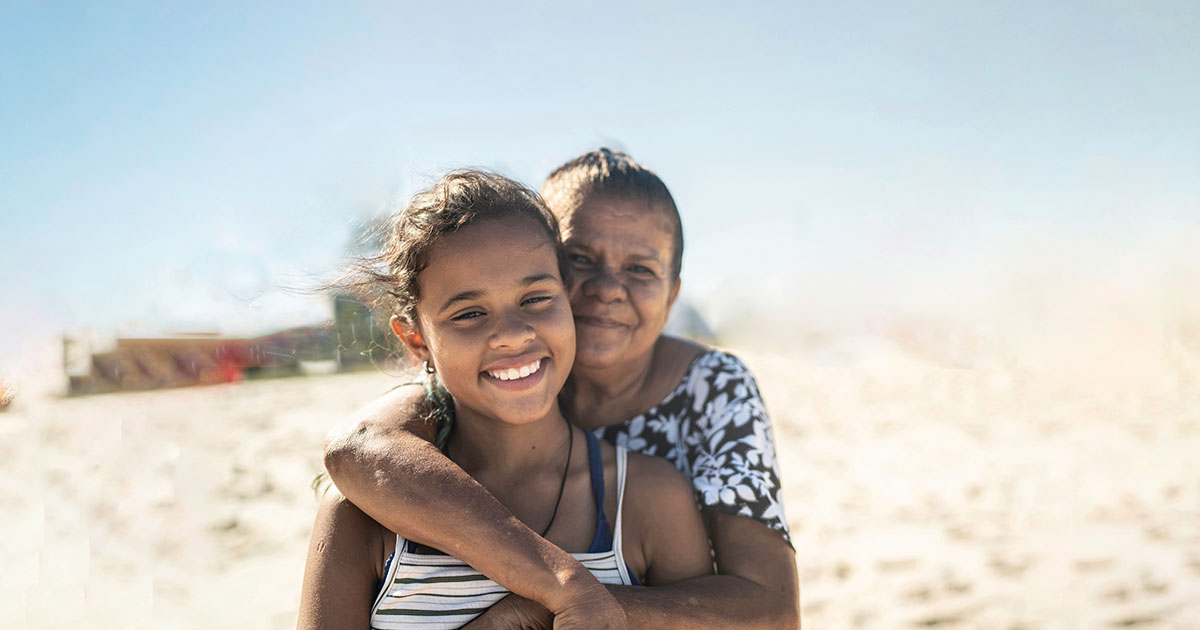From challenge comes change
- Details
The very timely theme of ‘Choose to Challenge’ for this year’s International Women’s Day calls on all of us to celebrate women while rising up to challenge the status quo – so we can forge a gender equal world together. Equal distribution of power, influence and status means that those who have it, have to surrender it to those that don’t.
Today, and every day, we celebrate and acknowledge the frequently disregarded contribution of all women who serve and advocate for people and families at their time of need in many different ways.
Women are the majority at Mission Australia, making up 74% of our workforce. Throughout our organisation’s 160+ year existence, there have been countless women working and volunteering at Mission Australia and women who we serve through our programs, services and housing who have inspired many with their accomplishments.
One recent example is the women from our Circles of Care program leading the Dream Buyal Bandu peer-support group in Cairns – inspiring and teaching young women to value themselves and to grow their confidence and leadership skills. Then there’s our case worker Editha, who has worked at our Fairfax House in Western Sydney for 20 years. She features in our Easter fundraising appeal and is one of many highly skilled and passionate Mission Australia staff working with and providing support to families on the brink of homelessness. I encourage you to give what you can if you’d like to support case workers like Editha to help families who are homeless or at risk of homelessness.
While celebrating the women in our lives, we must also recognise the challenges still faced by many women. We must sharpen our ability to see the barriers that stand in the way of women being fully participating members of our community, and when we see them, remove them – even when we find that we are the barrier. To do this, we must challenge, champion and advocate for measures and policy changes that would create a better, more equal Australian society. Women in Australia are more likely than men to live in poverty, earn less, be in casual or insecure work and provide unpaid care. Young women are expected to be most vulnerable to prolonged unemployment as a result of COVID-19.
Women are also more often subjected to domestic and family violence. We know financial constraints, a lack of affordable housing , low levels of income support and childcare costs can influence a woman’s decision to not leave an abusive relationship. Leaving a violent situation is already very challenging and dangerous, so adding the stressors of COVID-19 and financial insecurity can make it a near impossible choice for many women.
At Mission Australia, we work every day to provide support to women when they’re at their most vulnerable – they might be homeless, living in poverty, or experiencing or escaping domestic and family violence.
Access to safe, secure and affordable accommodation is part of the solution. However, with the severe shortage of social and affordable homes, too many people – including women and families – simply can’t find a safe, secure and affordable home. This is why Mission Australia continues to be a staunch advocate for a national plan to end homelessness and long-term government and private investment to address the critical shortage of social and affordable homes.
Strategies to ensure economic security for women are also sorely needed to prevent heightened risk of homelessness and disadvantage now, and later in life. I was appalled at the Federal Government’s recent announcement that income support payments will rise only a fraction – keeping people who rely on them living in poverty and at risk of homelessness. Women will be disproportionately affected by this distressingly low level of income support. It is crushing for so many who are already struggling to make ends meet. We will continue to call on the Federal Government to commit to an adequate increase to JobSeeker and related allowances.
Supporting gender equality is of critical importance, not only as a response to economic and employment issues, but also to reducing violence against and unfair treatment of women. We still need national strategies that will address the gender pay gap, provide paid parental leave and ensure childcare is affordable. The gendered drivers of violence against women must also be addressed as a priority, including promoting positive, respectful and equal relationships and challenging gender stereotypes.
On this very important note, I am sure I am not alone in being distressed and disturbed by the steady stream of accounts most recently from Parliaments across Australia about the treatment of women and the allegations of serious crimes that have emerged. We have been hearing more and more of these reports in the media and these are very likely the tip of the iceberg of a bigger, systemic issue. This could well be Australia’s #MeToo movement finally finding its voice. From these challenges must come change. Organisations across many different sectors in Australia must take note, take action, and make changes that will better support their female staff.
As CEO, I along with senior management and all of us at Mission Australia take these issues very seriously and strive to ensure women are safe, supported and equal contributors in our workplace. We have a zero-tolerance approach towards misconduct and sexual assault of any nature at Mission Australia. Everyone deserves the right to a safe and respectful work environment, and we have very clear channels available to support anyone who needs it. In our workplace, we prioritise ensuring staff who are either experiencing or at risk of DFV can come forward for help and support. We have a DFV policy which supports any staff who are impacted and includes access to extra DFV leave. We hope many more organisations will do the same. Our gender diversity strategy aims to increase the number of women in leadership roles, and we have strong practices in place which ensure the financial wellbeing of women when they take time away from Mission Australia to have and raise children.
Of course, policies and processes are an essential piece of the puzzle, but improving gender equality is everyone’s business. We must all take responsibility to dig into and really challenge the ‘norm’. We must ‘be’ the change we want to see if we want true gender equality – by nurturing environments and a culture that enables and empowers people to rise up and speak up when someone is experiencing, suspecting or seeing prejudiced or oppressive behaviour.
I encourage everyone to consider whether Mission Australia is living up to this challenge and invite you to contact me with your views. It is very important to me that we can have honest conversations about where Mission Australia can do better, so that we can work together to ensure an equal and safe organisation for all.

James Toomey
CEO Mission Australia
@jbc_toomey
Related media releases
Read about what we’ve been working on, our stance on important social issues and how you make a difference to vulnerable Australians' lives.



